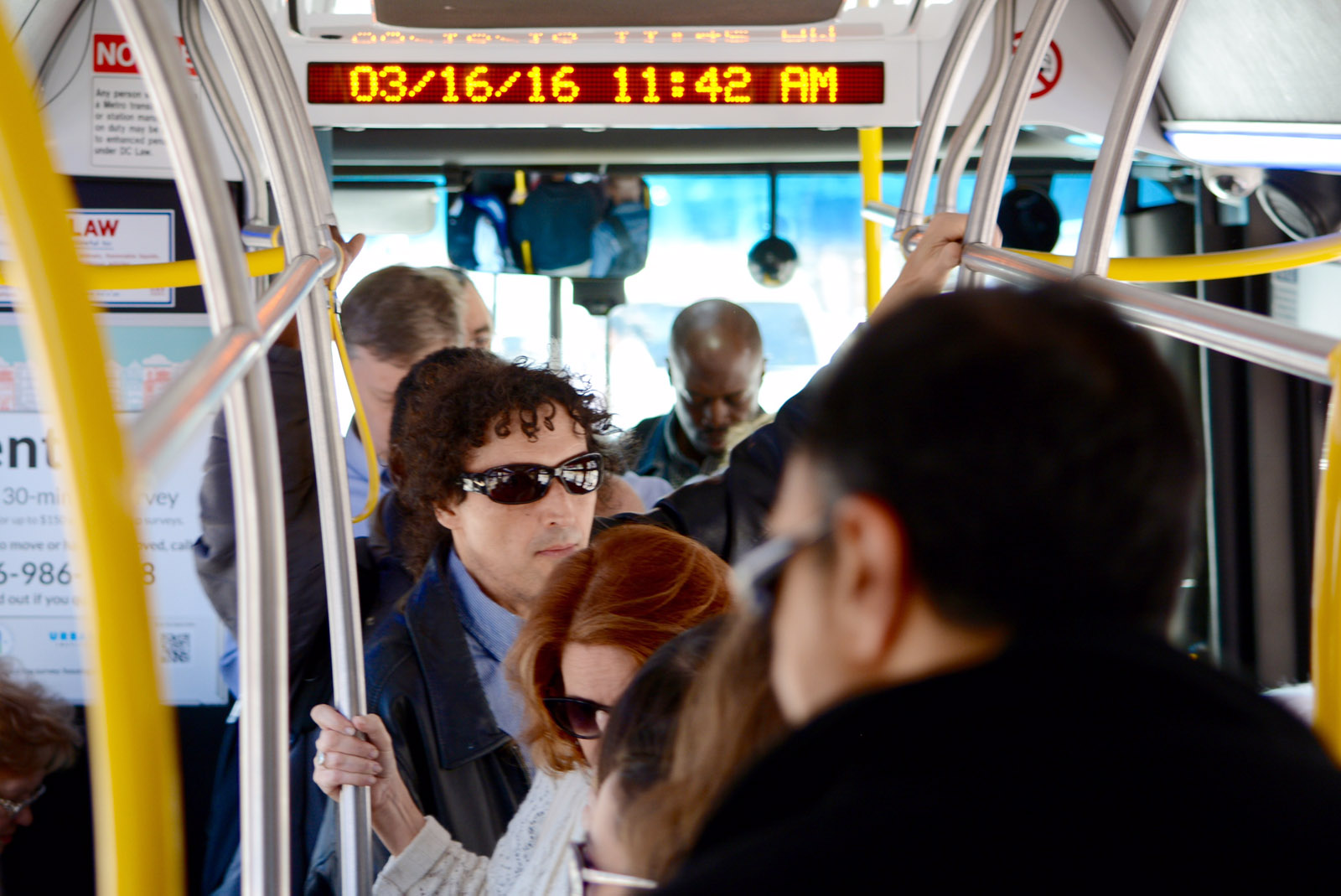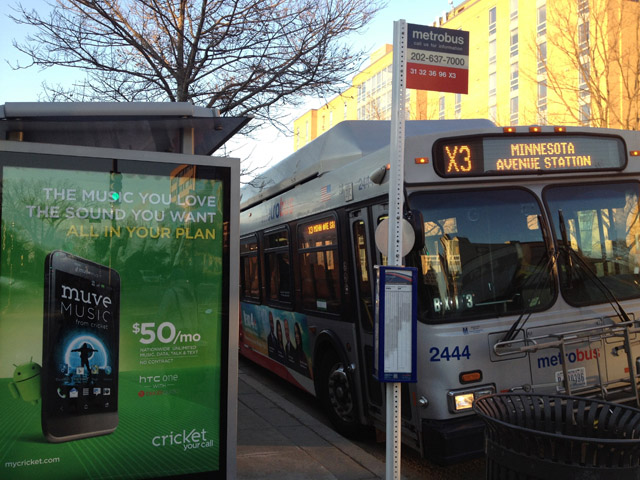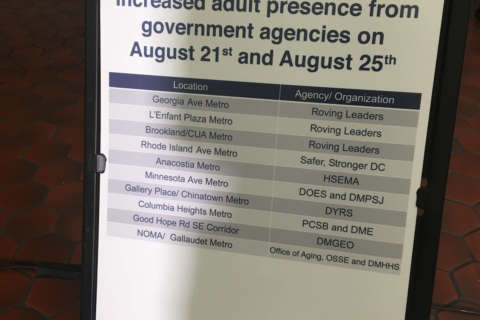WASHINGTON — Repeated problems with free rides for D.C. students regularly create conflicts and could sometimes lead to attacks on Metrobus operators, a panel of transit industry experts are set to tell Metro’s Board Thursday.
As part of a broader review of Metro’s response to, and efforts to prevent, bus operator assaults, the peer review panel from the American Public Transportation Association found many DC One cards do not work, have been lost or are given to non-students.
The panel also suggests Metro provide more training both on how to prevent assaults and how to deal with them after they happen, including encouraging the Metro Transit Police to collect saliva samples for DNA analysis when drivers are spit on.
Metro should also give bus operators suggested responses to questions about riding free rather than instructing them to remain silent or quote the fare, the panel said.
While Metro has installed protective shields on some buses, cameras on all buses, and deploys police officers to the most high-crime routes, the panel suggested Metro consider whether “additional resources are necessary to reduce bus operator assaults.”
“The Panel notes there is a gap between the expectations of bus/rail operations personnel and the actual number of police personnel available for deployment,” a summary of the findings said.
Metro hopes a public-relations campaign aimed at “humanizing” bus operators, de-escalation training and a renewed emphasis on the use of silent alarms on buses could help.
The panel suggested adding a personality test to the hiring process to better identify people with customer service and problem-solving abilities.
Metro has also called for the ability to ban people guilty of assaults from using the transit system.
Metro Transit Police must better account for the actual number of assaults by reviewing crime data after cases are closed, the review panel said, but assaults still rose at least 29 percent in 2017 — from 70 to 90 as of Dec. 9.
Kids Ride Free changes suggested
Metro is suggesting changes to give students preloaded SmarTrip cards each school year instead, and to remove the restrictions that limit use of the card to stations in D.C., Capitol Heights, Friendship Heights, Southern Avenue, Silver Spring and Naylor Road.
The restrictions are a major reason students have ended up with negative balances attached to their cards for going even one stop farther.
Metro blocks anyone with a negative balance from using the system, even if the card also has a valid pass. As of this week, riders are no longer allowed to exit the system if it would leave their card with a negative balance.
An estimated 40 percent of D.C. public, charter and private school students still fail to tap in or out on Metrorail or buses for their free rides this school year — and that’s actually a dramatic improvement from the estimated 66 percent who failed to do so over the 2016-2017 school year, Metro said.
But ongoing problems with students having negative value on their cards — which now prevents them from using the system — or confusion among private school students about how to activate the pass on the DC One school ID card, now leads to “confusion, frustration and a lack of compliance, making it easier for students to rely on flashing the card or not using it at all instead of tapping it at the fare gates,” Metro Board documents said.
If students don’t tap their cards, Metro loses the ridership data that is important for federal funding. The official ridership numbers can also change regional funding formulas.
Metro is not proposing any changes to the per-student pricing of the program, which is paid for by the D.C. government.







